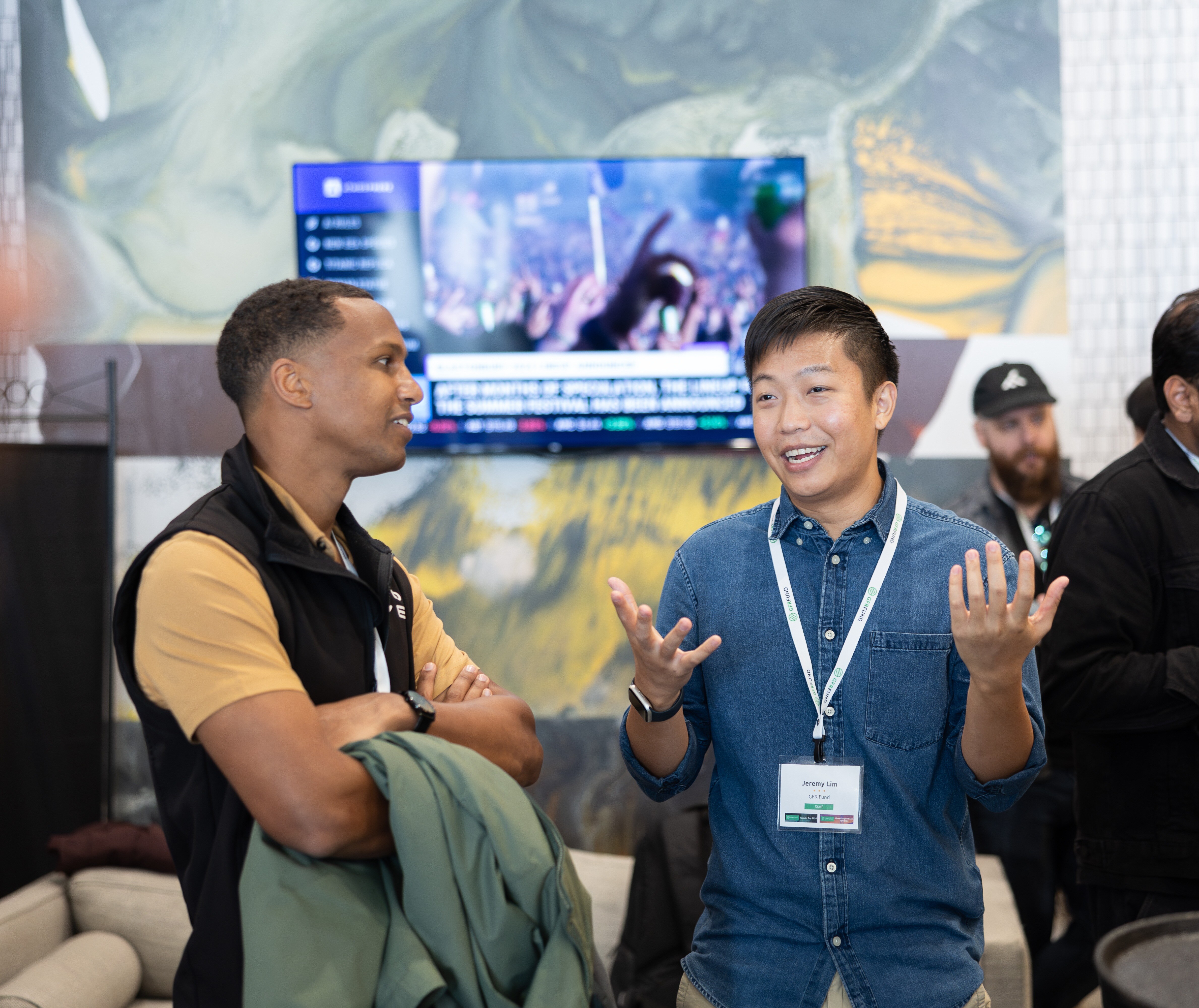At GFR Fund, our investment strategy revolves around emerging digitally-native communities. We're passionate about identifying and supporting founders who understand the transformative power of community building in the digital age.
As we connect with startup founders, we realize that the role of community is often overlooked amidst the flurry of product development and market research. Yet, it can play an important role in lots of aspects of entrepreneurship, especially for consumer-facing startups. Specifically, a robust community can bring value to:
1. Product Market Fit (PMF):
Community feedback serves as a compass guiding founders toward PMF. Entrepreneurs can gain invaluable insights into user preferences, pain points, and desired features by creating open communication channels with their audience. This creates a real-time feedback loop in product development, ensuring that the final product resonates with its intended audience.
2. Acquisition & marketing:
Community-driven acquisition stands out with its authenticity. Leveraging the power of word-of-mouth and user-generated content, startups can tap into the expansive networks of their community members to drive organic growth. Community-centric marketing strategies, such as creating viral content or partnerships with Key Opinion Leaders (KOLs), are often effective ways to reach wider audiences and build brand affinity for consumer-facing startups.
3. Retention & engagement:
Building a loyal customer base relies on fostering meaningful connections with users beyond the initial transaction. Communities act as a hub for ongoing engagement, facilitating discussions, support, and collaboration among users.
As community members participate more in the products' growth and development, they start to feel a sense of belonging and ownership. And creating a sense of ownership is very important for startups that want to enhance user retention and drive long-term value.
4. User experience (UI/UX):
What's the best way to create user-centric UI and UX designs? Talking to your users! A community is an effective source for startups to gain user feedback, which they can use to prioritize seamless experiences. By involving users in the design process, startups can uncover pain points and preferences and create user-friendly solutions that resonate with their audience.
5. Talent sourcing:
Startups often need experts in specific technologies like machine learning, computer vision, and automation. By tapping into their community, startups can find talented individuals with the skills they need to bring their ideas to life. This collaborative approach allows startups to access specialized expertise and accelerate their development process.
Case Studies: Omeda Studios and RTFKT
Two of our portfolio companies, Omeda Studios and RTFKT, exemplify how community-building can become the key to startup success. Since day one, their community-driven strategies have shaped their entrepreneurial journeys and contributed to each of their major milestones.
Omeda Studios: Co-creating with community
Omeda Studios is a UK-based video game studio developing Predecessor, a third-person action MOBA (multiplayer online battle arena) game for PC and Console. Omeda's journey underscores the transformative power of community involvement from the early stages of development.
"I think community building is extremely important for startups," said Robbie Singh, founder of Omeda Studios. "It's part of knowing who your audience is and who you're building for. If you can grow and nurture a community of people who believe in what you're building, that's the first sign of validation."
Singh had been a Paragon (MOBA game developed and published by Epic Games) gamer and streamer before starting his studio. With his deep understanding of the industry and robust fan base, he was able to establish a vibrant community on Discord even before Omeda's Alpha launch. The community was excited about his game and eagerly contributed ideas and feedback, feeling invested in the product's evolution.
"Community feedback was pivotal in ensuring we were moving the game in the right direction," said Singh.
Singh consistently engages with the community, whether on Discord, Twitter, or YouTube. He's also been partnering with streamers and focusing on making the game streamable.
Singh's demonstrated a genuine commitment to co-creating with his audience. And his community is just as excited to be part of the co-creating process. The Predecessor community has hosted its own tournaments, Prime Championship Circuit. It's helped showcase the competitiveness of the game, which is pivotal for any MOBA or esports title.
Omeda Studios will be launching a major update on May 21, which includes a brand new hero and a new fast-paced game mode built with community collaboration. The new game mode will make the MOBA genre "extremely accessible to all players."
RTFKT: Cultivating culture-driven connections
RTFKT creates virtual sneakers and collectibles. Founded by Steven Vasilev, Chris Le, and Benoit Pagotto who were all internet culture enthusiasts, RTFKT understood the pulse of online trends and cultural movements from the outset.
RTFKT's journey began with producing viral content across Instagram, Twitter, and TikTok, establishing a strong digital presence and captivating a passionate community. The team continued to design high-quality digital products that resonated with its community's interests, bridging the gap between virtual and physical realms.
The founders and the team have kept active communication and engagement with their community. Through platforms like Twitter, Discord, and Instagram, the team maintains an open and personal dialogue with its community to solicit feedback. This has also humanized the brand, which encourages audience engagement and fosters a sense of belonging in the community.
In addition, RTFKT's strategic collaborations with relevant celebrities further amplified the brand's reach and solidified its position as a leader in the digital culture space.
Both RTFKT and Omeda exemplify the great potential of community-centric entrepreneurship. The founders of both companies have adopted a humanized and personal approach to their communication with users. And by prioritizing community engagement and leveraging the collective wisdom and enthusiasm of their supporters, they've successfully developed popular products and grown brand awareness.
In conclusion, community emerges as a multifaceted catalyst driving entrepreneurship forward across every stage of the journey. As seen from the case studies, embracing community-centric strategies is crucial not only for startups' initial success but also for sustainable growth, product innovation, and developing a unique brand identity.
If you're a community-driven founder, pitch to us by filing out this form! For LPs, reach out to us at hello@gfrfund.com.

.jpeg)

-1.png)
